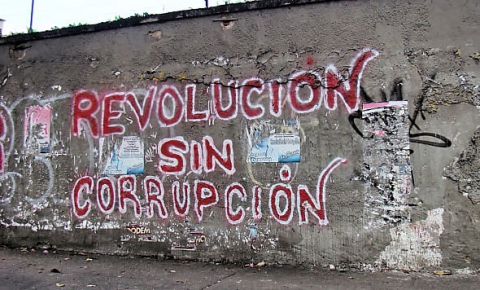Filipino journalist María Ressa, the winner of the 2021 Nobel Peace Prize along with Dmitry Muratov, held a conversation with Venezuelan journalists Luz Mely Reyes and Xabier Coscojuela on the meaning of this award for the world of mass communication and the two journalists, each of whom has faced authoritarian regimes in their day to day work.
The directors of Venezuelan news outlets Efecto Cocuyo and Tal Cual were able to hear first-hand what the distinction has meant for the renowned Filipino journalist, a prize that Ressa has dedicated to all her colleagues around the world.
Ressa, a Filipino-American woman who worked for nearly two decades at CNN, founded the online news organization Rappler in her native country in 2012. Since then, the Rodrigo Duterte government has done almost everything in its power to silence her and get her independent medium out of the business.
“This award is for all the people who fight for freedom of expression, for media like Efecto Cocuyo and Tal Cual; for all the journalists who devote themselves to that mission, ”she said.
Nobel Peace Prize laureate
“The last time a journalist was awarded the Nobel Peace Prize was before the Second World War, and after that, the laureate journalist was assassinated in a Nazi death camp. The next few years are going to be critical for us journalists. I am optimistic but aware of the difficult path ahead of us, and that is why the Nobel Committee gave the award to two journalists this year. It is helping us continue on our way, ”she said.
The Nobel Peace Prize laureate assures that communication professionals are called to become stronger and confront those in power to continue doing their job.
In her message, Ressa referred to the situation of Venezuela and a Venezuelan media that fights censorship and the lack of freedom. “Venezuela is one of the countries with the worst security situation in the world, this (Nobel) prize is also dedicated to you,” she commented.
Ressa’s Rappler website, which started as a Facebook page in 2012 and has become one of the most credible sources of independent news in the Philippines, has come under attack by President Duterte since his election in 2016. The President’s speech on the 2017 State of the Union claimed that Rappler was foreign-owned, which violates the Constitution. Duterte has also said that the website spreads “fake news.”
The allegations were followed by investigations by the government and, in 2018, Ressa and Rappler were the targets of accusations of cybercrime, tax evasion, and all the intimidation that the Duterte government was able to muster.
“Rappler rests on three pillars: technology, journalism, and community. The first refers to the fact that we have to set limits, by law or by demanding better work from the big platforms, ”she emphasized.
For her, the Nobel Prize recognizes the work of independent journalism, the kind of journalism “that seeks to promote accountability and helps us hold the public powers accountable. We cannot be intimidated, we cannot be silent, ” the Filipino journalist said.
Ressa explained that she had to reinvent her way of communicating so as not to be intimidated and comply with the premises that this profession entails.
“I think the Nobel Committee gave this award to two journalists because it realizes that we have to stand firm until the world is fixed and sets limits to the technologies,” she said.
And although she has been accused of being financed by the United States Government, Ressa said that her work has also denounced several American administrations for using the media to impose their policies.
“Research has shown that technology platforms and US social media companies spread lies that are laced with anger and hatred. If you don’t have the facts, you can’t have the truth, if you don’t have the truth, you can’t have confidence and we don’t have public spaces for a shared truth, ”she says.
Ressa was congratulated by the same Filipino Government to which she has dedicated part of her journalistic struggle, but she recalled that she did not feel it as a sincere act. “The Government congratulated the first Filipino woman to be awarded a Nobel Prize and then recalled the cases it has brought against me,” she explained.
Watch the full interview here:
Translated by José Rafael Medina




